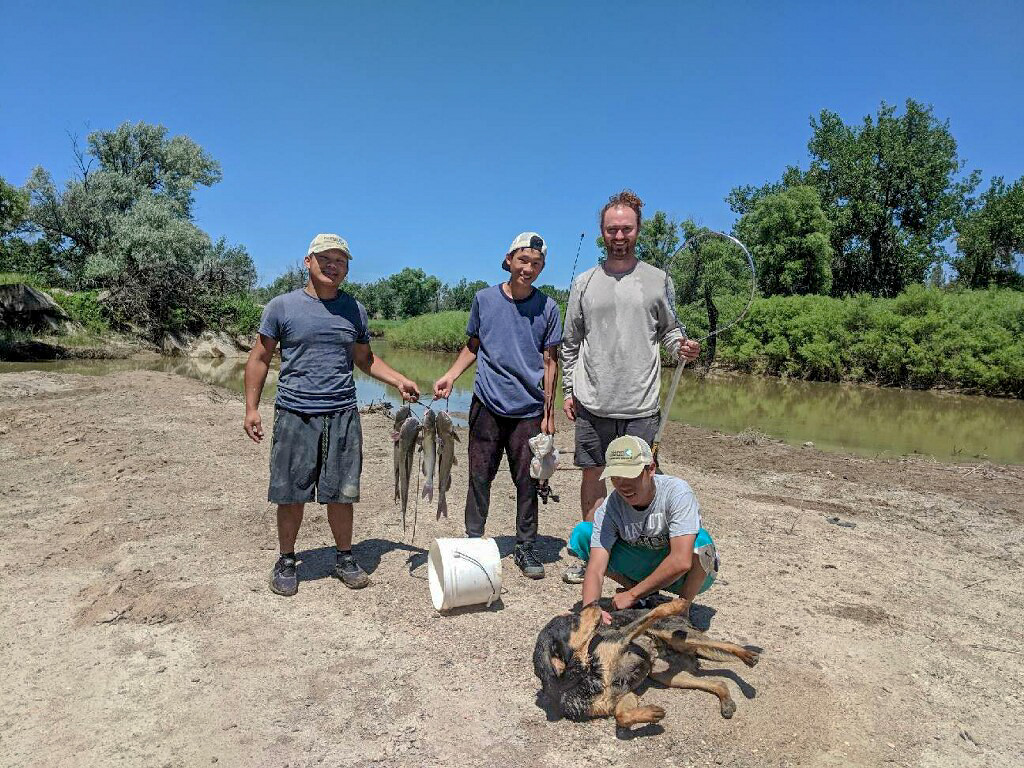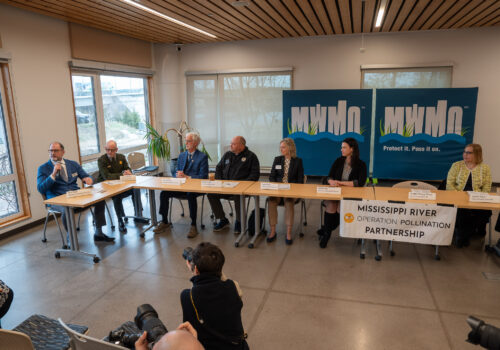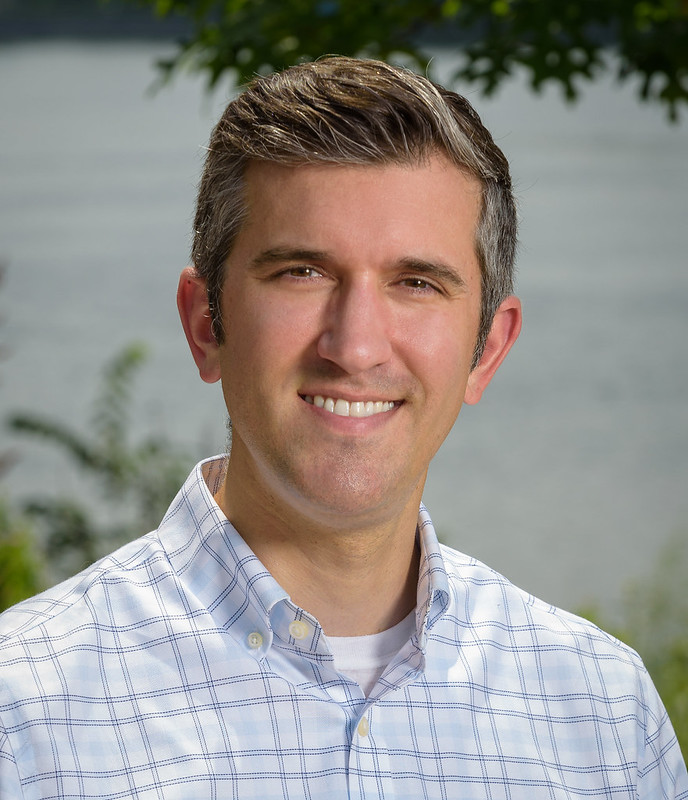
News / October 02, 2018
MWMO, Nature Conservancy Partner to Forge New Environmental Career Pathways for Urban Teens
This summer, the MWMO began writing a new chapter in our efforts to recruit and mentor the next generation of environmental leaders. Through a partnership between our organization and the Nature Conservancy, four North Minneapolis teens — graduates of our Mississippi River Green Team program — traveled to North and South Dakota for an internship program. The group spent the month of July doing conservation work and learning to live on their own, away from their families and immersed in a natural landscape unlike anything they had ever seen.
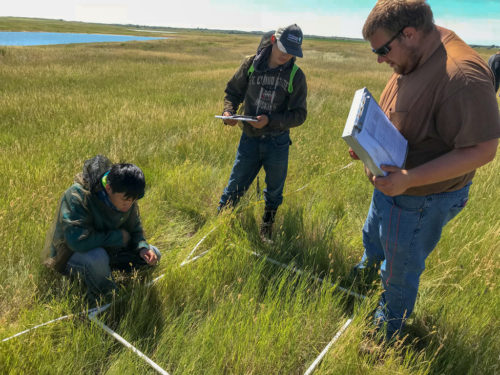
The program is called “LEAF,” short for Leaders for Environmental Action for the Future. Launched more than 20 years ago by the Nature Conservancy, LEAF provides paid internships to young people from urban, underserved communities. Participants are recruited from all over the United States, typically from environmental high schools. The four Green Teamers in the MWMO’s cohort represented the first LEAF participants recruited locally in Minnesota.
For the MWMO, the LEAF program presents a natural complement to the Mississippi River Green Team. Created by the MWMO and the Minneapolis Park and Recreation Board, the Green Team provides 14 to 16-year-olds with two years of conservation employment and education. LEAF and the Green Team serve similar populations and use a similar approach. They provide urban youth with a mentored environmental job experience, with the ultimate goal of building equity in the green workforce by helping them pursue environmental careers.
The MWMO already supports Green Team members after they complete the program, helping them find and apply for jobs. But LEAF (which serves youth age 16 and older) opens up a new pathway that could lead to additional internships and help jump-start their careers.
The four Green Team alumni — Armonie, Fong, Randy and Seng — flew to South Dakota in July to begin their work at Whitney Preserve. There, Nature Conservancy staff enlisted their help with a wide variety of conservation work, including building cattle fences, removing invasive plants, and conducting biological surveys. The work was often hard, but it led to some memorable experiences.
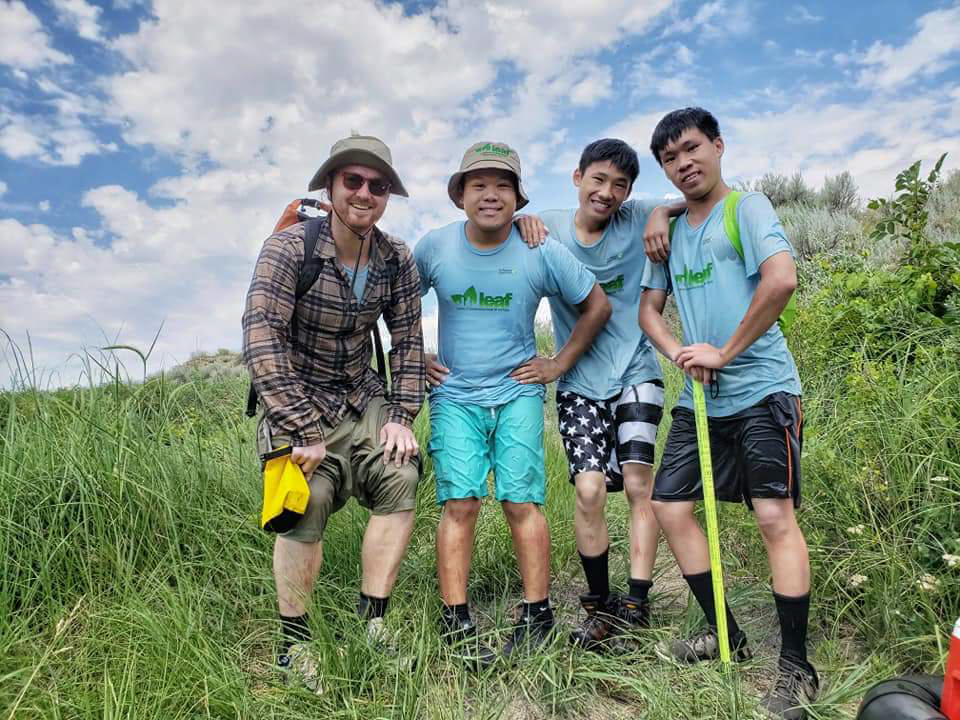
Early on in the trip, the team was assigned to do plant monitoring in a stream. Tasked with hunting and documenting stream orchids and a type of fern, they found themselves wading and then swimming, pulling themselves by grasping fistfuls of grassy stream bank and scraping their shins on rocks as they maneuvered downstream. The group emerged from the water scraped up and soaking wet, but smiling. Randy later described it as “the best and most exciting experience of the whole month.”
“It was the best job assignment throughout the whole trip for me,” Randy said. “We picked and ate edible berries along the stream that were better than I expected, and having to swim when you unknowingly walk into a deep hole was exhilarating.”
He laughed, adding, “The only con was scraping our legs and knees every other minute, but the cold water helped.”
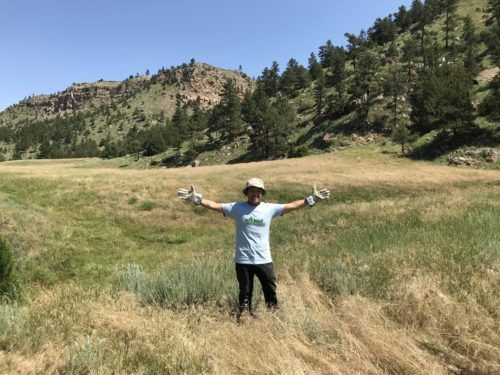
The landscapes of North and South Dakota presented some awe-inspiring vistas: vast open prairies intermingled with jagged mountains and lush forests. Fortunately for the interns, the LEAF program makes sure to provide ample opportunities for recreation. During the off-hours of their month-long trip, the group snapped selfies at Mount Rushmore, explored Wind Cave National Park, visited the North Dakota State Fair, got up close and personal with wild bison at The Conservancy’s Cross Ranch nature preserve, and went fishing in the Missouri River.
Once a week, the group also visited a college campus to learn about the environmental educational opportunities. The LEAF program wants to promote continuing education for students. Providing the college campus visits in the areas near their work locations gives them a chance to see what college could be like and ask questions of the college staff.
Even in their free time, however, the group found themselves learning new things. The LEAF program provides interns with a stipend for food and living expenses, and then requires the group to work together to manage their household budget. They had to come up with their own plan for buying groceries and supplies, cooking meals, sharing cleanup duties and household chores. They began living like independent adults.
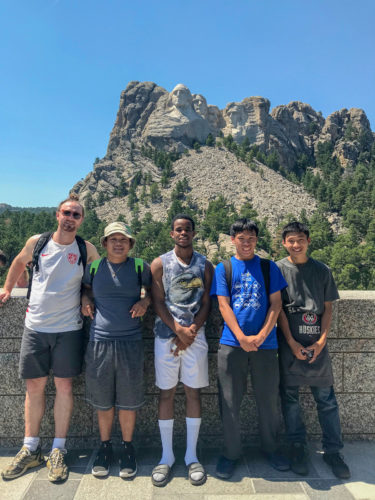
Louise Morgan, the Minnesota LEAF program coordinator with the Nature Conservancy, says the process of learning these kinds of basic life skills is baked into the LEAF program by design.
“This is a great opportunity for the interns to practice independent living skills in a safe situation,” Morgan said. “They choose the menu, shop for the ingredients, cook the meals and share their creations with their teammates. The interns feel more confidence about their skills and they can help their parents when they get back home.”
Each of the group members also had to learn how to cope with home-sickness — something new to each of them. Though they were allowed to call home twice per week, they had to surrender their smartphones for the duration of the internship. With no access to Snapchat, texting or video games, they filled their free time with conversation, reading and old-fashioned board games instead.
Their guide to help shepherd them through this alien environment was Brooks Kennedy, their LEAF program mentor. The LEAF mentors play a crucial role in the internship experience, serving the dual role of work supervisor and life coach. Mentors are also rigorously trained in wilderness survival techniques and first aid — knowledge considered critical for performing work in wild, rural areas located far from any hospitals.
Kennedy said the LEAF program provides an opportunity for the interns to be challenged and to challenge themselves. He believes this kind of experiential learning sticks with the interns long after they leave.
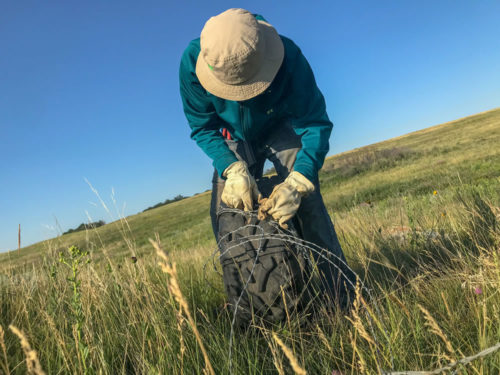
“LEAF will give you ideas and experiences that you will take with you as you keep learning and growing,” Kennedy said. “We each take steps to get to where we want to be in life and this is a big step. The effort that you put in is what you’ll get out of the summer.”
The MWMO and the Nature Conservancy plan to continue the LEAF partnership, and are already making plans to recruit Green Team alumni for next summer’s intern positions. MWMO Executive Director Doug Snyder said these kinds of partnerships are key to advancing the MWMO’s youth programming goals.
“The MWMO is continuing to seek out partnership with organizations like the Nature Conservancy in order to provide youth in the watershed with experiences and training they would otherwise be unlikely to get,” Snyder said. “These types of collaboration expand our reach in ways we cannot do alone.”
